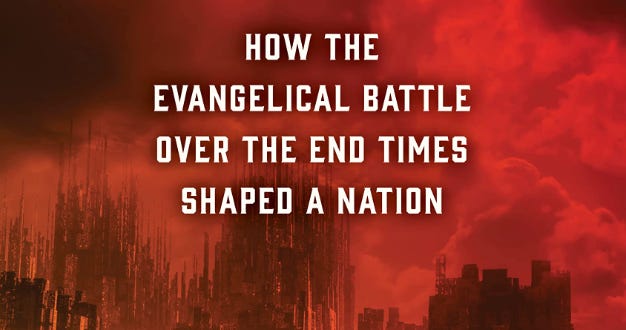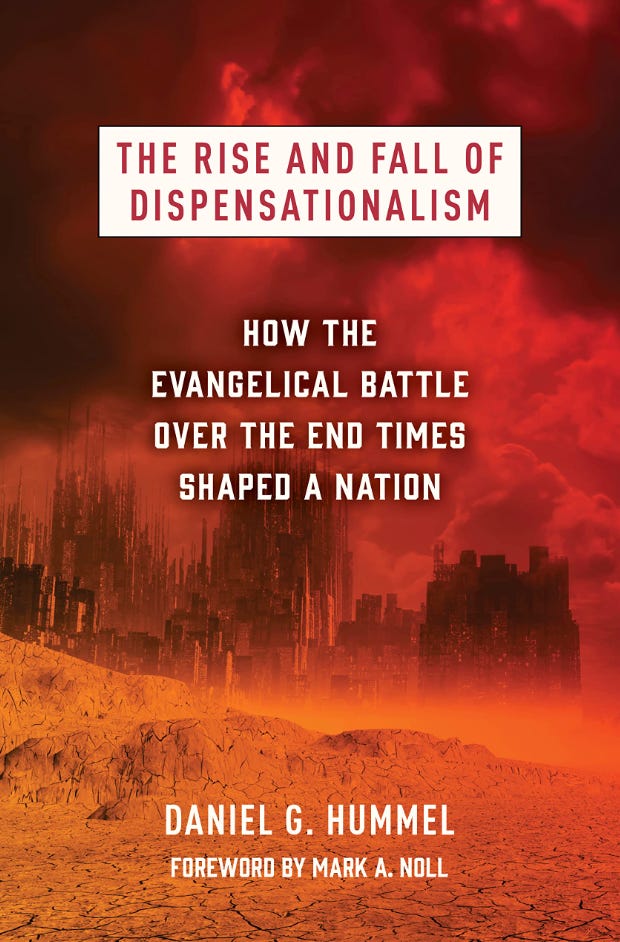Still Here
Youth ministers have been (too) often evaluated by whether or not they got a high percentage of the youth saved. Or, in some cases, if they got the right kids right with the Lord. One of the tricks of the trade for youth pastors was graphic storytelling of the use of movies about the imminent rapture and the horror for those who would enter into the Great Seven-Year Tribulation. Part of the narrative youth pastors told was the rebirth of Israel and Russia’s desire for world dominance and, by and large, that America was on God’s side because America was on Israel’s side, so support Netanyahu.
Some of you did not grow up under the Fear of the Rapture, but most of us did since it has only recently begin to fall from ministry graces. I grew up in that Fear, both with annual revival weeks that often had a prophecy night or two in it and with watching The Thief in the Night. My memory, if it still grabs the right timeline (not that one), is by the time our youth pastor showed us that movie I was already straightened out with the Lord. So it was a refreshing confirmation of what I knew to be true.
My experience is this: when I was in college the Rapture doctrine was still quite big but by the time I returned to teach at my alma mater more and more students were going post-Trib, and that was one step away from A-Mill and the next thing the Rapture stuff would fade into the background. But what I learned in teaching there more than a decade was that seminary students who bought into post-Trib or preterism were entering churches that would have none of it. So, the pastors more or less silenced Revelation and Rapture and Millennium. But if they did bring it up, the evangelical instinct took over among congregants, and that instinct was dead-set and clearly-defined pre-Trib Rapture doctrine.
But you have to admit this: though the old-fashioned dispensational stuff may still be alive on TV and on WMBI and with John Hagee and a few others, it has faded and fallen to near silence among many. What is undeniable, and which I have said for decades, is that congregants love it and it has grown among them but the professors are again’ it and it has all but faded from most classrooms.
Enter Daniel G. Hummel who has written what will become a landmark study of the rise and fall of dispensationalism. The book needed to be written. It’s called The Rise and Fall of Dispensationalism: How the Evangelical Battle over the End Times Shaped a Nation. I met Dan at an event in Madison where he works, and I have been waiting this book as much as some are reading the news to find out if Russia will make the decisive move. Join us for a series on this book, which tells the history of the rise and fall of dispensationalism.
If you did not grow up in this stuff, you need this book because of its pervasiveness and influence all the way into the White House. Both Reagan and Bush 2 were shaped in important ways by the predictions of populist dispensationalism. I had forgotten how Pat Robertson connected Putin’s invasion of Ukraine to the eventual Battle of Armageddon, which he takes to be literal prophecy. The “plain meaning” of Scripture is very much a major player in the dispensationalism approach.
Hummel has a wonderful “Introduction” that tells the story of Philip Mauro, and I recall his name from my college years but had no idea how deep his de-conversion out of dispensationalism was. I remember dispies loving his (early) writings. Here are some of his major ideas and we will flesh them out over this series.
First, dispensationalism was a theology that was shaped by and shaped the American culture. It was maybe the face of an eschatology and hermeneutical system but it was always, at least the American version of it was always deeply engaged in the future fate of the world and America. Dispensationalism – check out Samuel Perry, Andrew Whitehead, Philip Gorski – has always been political.
Second, dispensationalism contributes to and rides the waves of polarizations. As Hummel says it, “a theologically thin, while politically robust, popular evangelical culture,” and race is not absent from this culture.
Third, dispensationalism began in Ireland with John Nelson Darby and the Plymouth Brethren. When those ideas got into the USA they morphed into an American version that led to what Hummel calls “New Premillennialists” (1830-1900). In other words, dispensationalism was an accommodating force. By the mid 20th Century it had taken over in many evangelical institutions: churches, schools, publishers, radio stations. Byt the 1970s its influence began to wane among academics while it took off among the populace. Remember, the Left Behind series was turned down by a major publisher because “eschatology no longer sells.”
Fourth, Hummel provides a brief sketch of the major elements of dispensationalism: (1) eschatology, (2) literal hermeneutic, (3) a theory of time and history, (4) a bifurcation of the people of God into Israel and church with two differing roles, one earthly and one heavenly, (5) an entire biblical hermeneutic, (6) some tension over its theory of personal salvation – some with a more holiness emphasis, others with a “free grace” theory (Zane Hodges, ever hear of him?), (7) a social theory and critique, (8) a “cultural production and consumption” dimension, (8) it was for dissenters and populists who formed into a strong dissenter culture, and (9) originally more Great Lakes and only later did it move to Dallas and Texas and California.
Ah, this will be a fun book to read. Buy it and read it and buy another for your pastor. We’re still here folks. What those 1960s and 1970s speculators said would happen did not happen.
This series will not be public because, well, just because. So, if you want to participate…




I grew up Roman Catholic. Then, my wife and I became United Methodist, in order to be together in church, and in raising our kids. I’ve been a fully ordained elder in The United Methodist Church since 1999. Anytime I read, thought, and/or discussed Dispensationalism, I relied on simple faith and logic to guide me. Look forward to this. Thank you!
Thanks, Scot. I'll be interested to see whether he gets into the Dispensational hermeneutic deeply (à la the Scofield Ref Bible). One of the lasting damages done by that Bible was the bifurcation of Scriptiure into parts that didn't apply to us (but only to Israel—and this included the Gospels, amazingly, as I look back now) and those that did (just the epistles). Learning to read the Gospels was a huge shift for me, a long time ago.